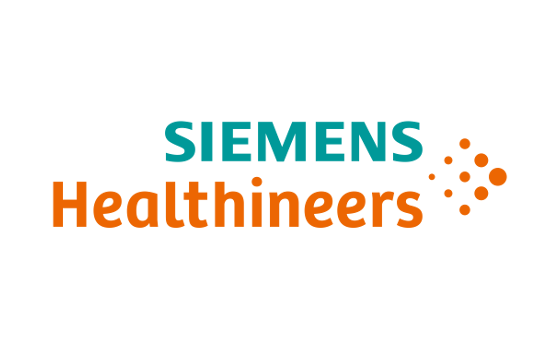 AI-Rad Companion Chest CT(1), an intelligent software assistant for radiology, was recently awarded the CE mark, which means Siemens Healthineers can start marketing this artificial intelligence (AI)-based software as a medical product in Europe effective immediately. AI-Rad Companion Chest CT helps radiologists interpret CT (Computed Tomography) images of the thorax faster and more precisely, and to document the findings in less time with the help of automatic measurements.
AI-Rad Companion Chest CT(1), an intelligent software assistant for radiology, was recently awarded the CE mark, which means Siemens Healthineers can start marketing this artificial intelligence (AI)-based software as a medical product in Europe effective immediately. AI-Rad Companion Chest CT helps radiologists interpret CT (Computed Tomography) images of the thorax faster and more precisely, and to document the findings in less time with the help of automatic measurements.
AI-Rad Companion Chest CT is the first AI-based application on the new AI-Rad Companion platform, and is vendor-neutral(2), which means the software can evaluate image data from many CT system manufacturers. Siemens Healthineers plans to expand this platform so that more and more intelligent algorithms will be available for additional organs and modalities. This will enable the company to consistently expand its portfolio of effective solutions for AI-based clinical decision support.
"We introduced the first AI-based assistant in our AI-Rad Companion product line, AI-Rad Companion Chest CT, at RSNA 2018 in November last year," says Dr. Razvan Ionasec, director in charge of AI-Rad Companion at Siemens Healthineers. "We are pleased to be able to offer our customers in Europe this first AI-based assistant for use in clinical practice effective immediately. I can see huge potential in this new product line for growth in key areas of medicine and to provide support for physicians in their clinical decision-making processes."
"Results drawn up by radiologists can vary by some 10-20 percent, depending on the investigator," comments Dr. Bram Stieltjes, Head, Research Coordination Radiology and Nuclear Medicine, University Hospital Basel. "Algorithm-based diagnostics completely obviate this variability, generating constant results. That alone is a huge advantage of AI platforms like AI-Rad Companion."
Using CT images of the thorax (chest), the software can differentiate between the various structures of the chest, highlight them individually, and mark and measure potential abnormalities automatically. This applies equally to organs such as the heart and lungs, aorta, and vertebral bodies. The software automatically turns the findings into a quantitative report, which can be called up via the image viewing system used by the radiologist in the clinical routine. In certain circumstances, the intelligent assistant also alerts physicians to potential abnormalities that would otherwise have been missed because they were not the focus of the original examination, e.g. chance discoveries of pathological dilations of the aorta (aneurysms).
"Examination using a chest CT is a procedure often used in everyday clinical practice," says André Hartung, head of Computed Tomography at Siemens Healthineers. "For radiologists, this means more examinations in a limited amount of time and usually for low reimbursement rates. AI-Rad Companion Chest CT is a tool that can actually simultaneously increase productivity and quality in diagnostic radiology. This is a big step on our way to becoming a leader in clinical decision making."
AI-Rad Companion Chest CT is a cloud-based solution and uses certified, secure teamplay(3) infrastructure that complies with the Health Information Portability and Accountability Act (HIPAA) in the U.S., and with the General Data Protection Regulation (GDPR) in the EU. The software conforms to Digital Imaging and Communications in Medicine (DICOM) standards. The images and all supporting information can be made automatically available in the picture archiving and communication system (PACS) in line with the radiologist’s individual requirements.
About Siemens Healthineers
Siemens Healthineers enables healthcare providers worldwide to increase value by empowering them on their journey towards expanding precision medicine, transforming care delivery, improving patient experience and digitalizing healthcare. A leader in medical technology, Siemens Healthineers is constantly innovating its portfolio of products and services in its core areas of diagnostic and therapeutic imaging and in laboratory diagnostics and molecular medicine. Siemens Healthineers is also actively developing its digital health services and enterprise services. In fiscal 2018, which ended on September 30, 2018, Siemens Healthineers generated revenue of €13.4 billion and adjusted profit of €2.3 billion and has about 50,000 employees worldwide.
1. 510(k) pending. This information about this product is preliminary. It is not commercially available in all countries, and its future availability cannot be ensured.
2. Tested and validated for CT scanners from Siemens Healthineers, GE Healthcare and Philips Healthcare.
3. The product mentioned here is not yet commercially available in all countries. Their future availability cannot be ensured.